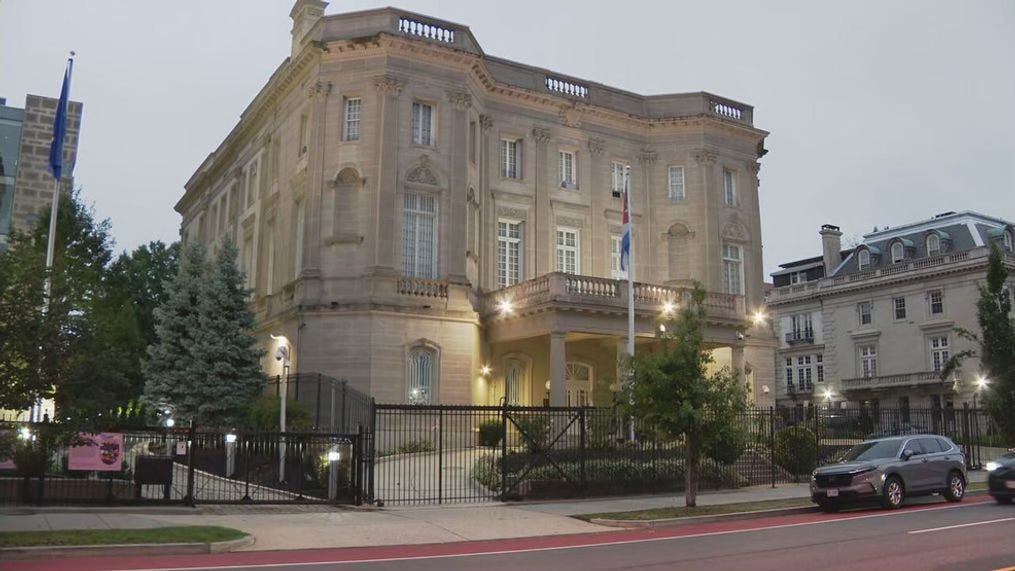Unsolved Mystery: The Bombing of Cuba’s Embassy in Washington, DC
Despite video and other evidence, Secret Service investigators have yet to solve the case amid worries of Trump launching covert action against Cuba
Shortly after 8 p.m. on the evening of Sept. 24, 2023, a young man in dark clothing hurled two Molotov cocktails over the guardrail fence in front of the Cuban Embassy in Washington D.C. and then promptly fled the scene.
Cuba’s president, Miguel Diaz-Canel, immediately branded the incident a “terrorist attack.” President Biden’s national security advisor, Jake Sullivan, condemned it and promised a “timely investigation.” But nearly 18 months later, an investigation by the Secret Service— which is responsible for protecting foreign embassies on American soil— appears to have gone nowhere. No arrests have been made and no suspects identified.




